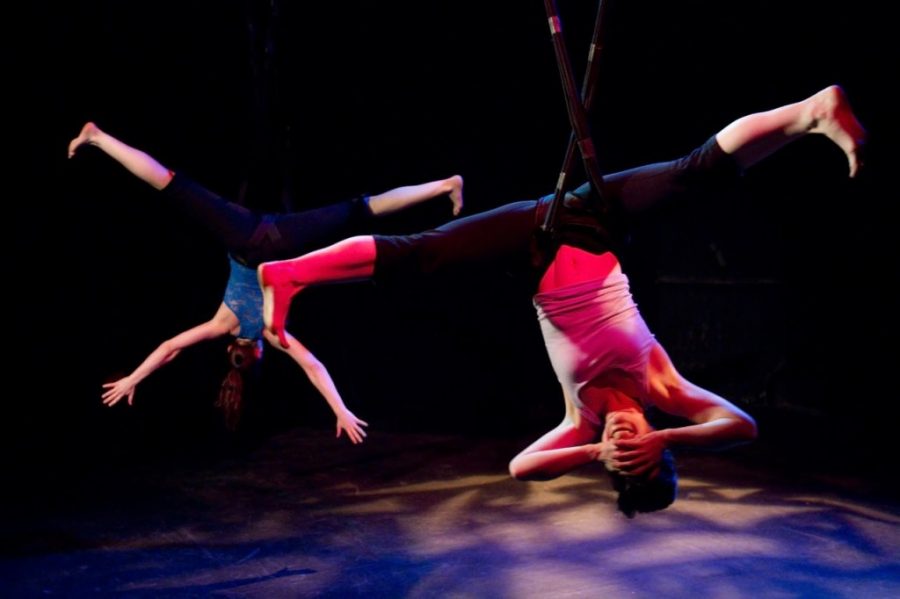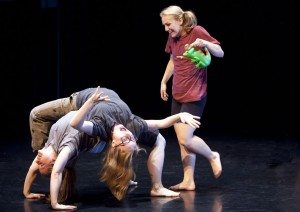

A dancer approaches the audience and asks them to give the dancers their shoes. After a brief pause, the shoes are removed, delivered and placed on the stage. The dancers ignore them at first, then pick them up, dance with them, trade with one another and pound them rhythmically on the floor before returning them to their rightful owners.
This is the kind of playful chicanery one finds in “Rascals with Altitude”, the spring dance performance by General Mischief Dance Theatre. The word that best describes the work is childlike. The dancers are all new to adulthood, and they express playfulness and joy in almost every movement. At times they are hoisted high on bungee cords to bounce and somersault in the air. Other times they assume the stance of a child pretending to be an elephant, lumbering across the stage on all fours. And they occasionally speak, addressing the audience with a pair of brief monologues about the loss of childhood and the poverty of time.
General Mischief clearly has an artistic identity, and it is always refreshing to see a company that actually has a personality. But the performance itself was lacking in conceptual clarity. The pieces seemed randomly assembled with the implication of a connection between them that was never made clear. And by round three on the bungee cords, this time the bouncing done to the well-worn Led Zeppelin tune “The Song Remains the Same”, the concept had grown a bit tiresome.
Also, the “mischief” was subdued. With the word “rascals” in the title, I found myself waiting for some genuine rascality.

But each dance has a storyline or an idea moving it forward. One piece ("Duel") portrays the rivalry of baseball fans (done to the tune “Dueling Banjos” and employing some unique audience participation). Another portrays the search for female identity via self-help books and the views of poet Chimamanda Ngozi Adichie. Perhaps the most visually compelling piece ("Buzz") depicts modern life through the light of smart phones being artfully moved about the darkened stage by invisible manipulators.
The performance concludes with a series of shorter dances inspired by the poems of Shel Silverstein and with original music composed by Lizzie Hagstedt. It is here that loneliness is explored and the performance takes its only turn towards the melancholy.
The dancers are all quite skilled and expressive, and each one of them seems well suited to the choreography and to the artistic personality of the company itself. They are clearly connected to one another, and it is touching to see both joy and loneliness expressed with such youthful exuberance, not to mention altitude.
Through May 4 at the Connelly Theatre.